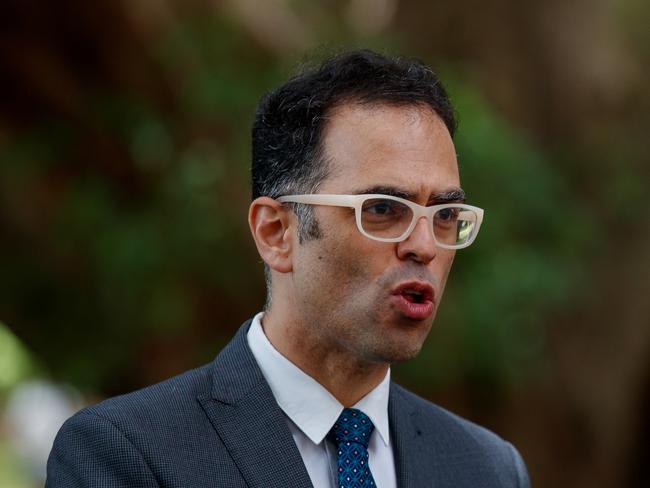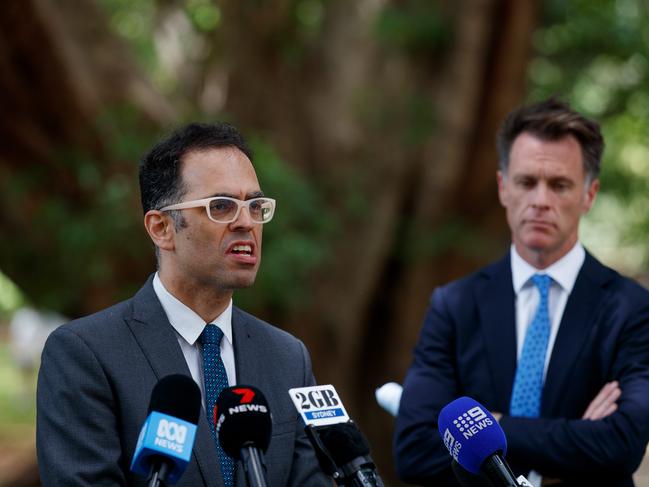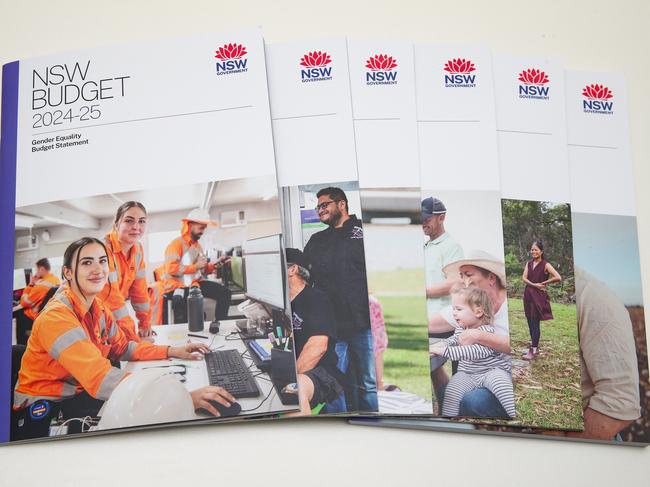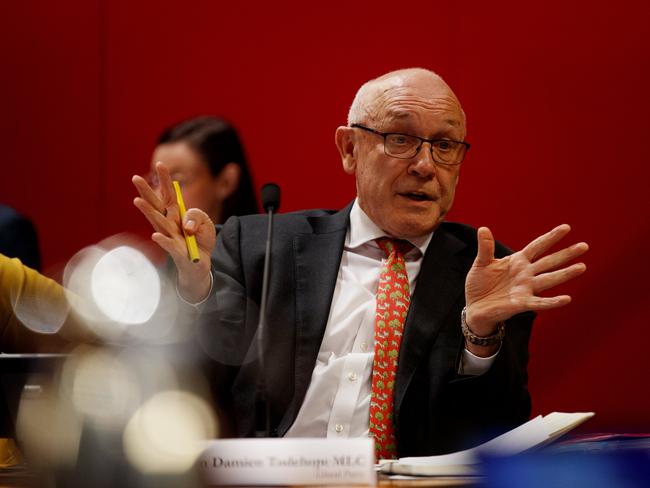Union wage deals lead to NSW budget downgrade
Ratings agency S&P has warned management of the budget could weaken amid wages deals and bigger debt.
NSW
Don't miss out on the headlines from NSW. Followed categories will be added to My News.
The Minns government has been dealt a major economic blow, with a global ratings agency declaring the NSW economy now has a “negative” outlook – and the public sector wages policy is partly to blame.
Ratings agency S&P downgraded NSW’s economic outlook from “stable” to “negative” on Thursday, declaring there is a “growing risk” that big union pay deals will blow out spending. The agency also said that the Minns government will need to borrow more cash to deliver infrastructure projects.
S&P warned that the Minns government’s management of the state’s finances “could weaken” if it does not rein in spending.
“NSW’s very strong financial management could be weakening,” the agency said.
In a damning assessment of Treasurer Daniel Mookhey’s budget management, S&P said some measures to improve state’s finances have “underperformed” on expectations.

Massive union pay deals were identified as a “growing risk” to the budget, after the Minns government abolished the Coalition’s wages cap.
“We consider there to be a growing risk that the government’s new public sector wages policy, enacted in December 2023, could lead to higher wage outcomes and weaker operating margins compared with its budget.”
The Minns government is spending $6.6 billion more on public sector wages than forecast than the Coalition government, and is under substantial union pressure to spend more.

The Rail, Tram and Bus Union is currently demanding a 32 per cent pay rise over four years, amounting to some $2 billion in spending.
The Nurses and Midwives Association is also demanding a wages deal which Premier Chris Minns has estimated to be worth more than $6 billion.
S&P also said that the government will need to go into more debt to pay for a $78 billion infrastructure pipeline mainly funded by asset recycling.

“This is the direct result of the Government losing control of the budget,” Opposition Treasury spokesman Damien Tudehope said.
“In the long run we will all have to pay the price for a government which has allowed spending to be out of control.”
Economist Chris Richardson described the downgrade as a “boot up the bum” for the Minns government, and warned that “losing discipline” on public sector wages could lead to more budget pain.

“It’s no great surprise that the ratings agencies are starting to raise an eyebrow.”
The agency downgraded NSW’s credit rating from AAA to AA+ under the Perrottet Government. S&P reaffirmed that rating on Thursday.
NSW retains a AAA rating from Moodys and Fitch.
“Of course the government will need to manage industrial relations risk, just as we have to manage inflation risk, construction risk and economic risk in these turbulent times,” Mr Mookhey said.
“To fix our essential services we have to be able to talk with our workforce.”
“That’s why we will always search for opportunities to offset wage increases by spending the public’s money better. That remains our approach.”





